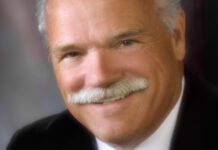In a short conversation with a man I’ve known for decades I mentioned how hard it can sometimes be to conjure up a topic for this column; he agreed by saying if such a task were left to him, he’d probably get run out of town. While appreciating the humor of the remark, I also took it as a warning; there are subjects which when put forth to the body politic can cause intense emotions and responses. And at the present time in America emotional responses seem to rule the day.
Theories abound as to how much media influences our lives and guides the way we ultimately live our lives; and media has been around a long while in the United States. If one looks at the roots of American media, it must be said that the public newspaper is the granddaddy of all the venues to come, with radio, television and the internet to follow over the next 200 years. To say that early American newspapers maintained strict adherence to objectivity, truth and accuracy would be falling in line with the acceptance they did; they did not, not all of them, anyway.
As in other areas, the new Republic adopted ideas spawned by the French Revolution, notably the guarantees of liberty, freedom of speech and press, and self-governance. And while Americans reveled in this freedom of publication without censure, it was a Frenchman who warned about that freedom.
Alexis de Toqueville was a 26-year-old and well-educated, erudite French historian when in 1831 he traveled extensively throughout America. Four years later he published his observations in a two-volume tome entitled “Democracy in America”; still the most quoted book in the United States and a staple in studies of American history.
Of our media of that time he wrote: “In order to enjoy the inestimable benefits that the liberty of the press ensures, it is necessary to submit to the inevitable evils that it creates,” supporting the idea that a society is held together by a free press providing accurate description of current events and issues, but such freedom also had its perils. And when de Tocqueville cited that “The power of the periodical press is second only to that of the people,” he understood that the human element would greatly influence the American landscape. He was correct.
In university communications studies, the human element with the most influence is known as “gatekeepers”; these are the people who, at different levels, make the final decisions as to what their respective media genres put out to the public. Gatekeepers are extremely influential, it is their choices of what, and how, current events will appear to that portion of the public that ascribes to their media outlets.
These choices, what the public takes in, leads us to another man known in the world of media, Marshall McLuhan. A Canadian philosopher and media pundit, McLuhan coined the adage “the media is the message” in the 1960s, while his overall work requires deep sociological and philosophical study, the base message is that we react to what our senses take in; and those reactions reverberate through societies and cultures.
This has been true in all phases of America’s past when media compelled the masses to some sort of action: revolt against an oppressive monarchy, enlist to aid allies at war, mobilize when attacked by a foreign power, march, rally or demonstrate both sides of issues, such as racial equality or participation in unpopular wars.
We are bombarded with rhetoric and images by myriad network and social media outlets on a continuous basis with current emphasis on political and public divisiveness regarding our democratic laws, processes and traditions. The political landscape of the past half decade saw media influence the body politic to acts of extreme measure; while I have no statistics to support this claim, I would venture to say that in the past 36 months there have been, per capita, more armed Americans in the streets than any time since the Civil War years. It was, and continues to be, a dangerous and decisive time in our history.
Five decades ago McLuhan wrote: “The past went that-a-way. When faced with a totally new situation we tend to always attach ourselves to objects, to the flavor of the most recent past. We look at the present through a rear-view mirror. We march backward into the future. Suburbia lives imaginarily in Bonanza-land.” His words support what we saw recently when the word “again” was used in a slogan supporting a political movement and planted the desire in many to somehow return American society to a past they viewed as the true nature of the country.
But globalization precludes any nation from going backward; the world is just too technically connected to allow any regress to those who wish to stay economically viable and socially and culturally secure.
How the present political dramas will play out is of course not ours to know, but I offer this scenario for consideration: take a group of 300 12-year-olds of all segments of American society (in a country of some 331 million people this would be quite doable), use an important current issue, we’ll use the events of Jan. 6, 2021, and give them one hour of video and still images, with audio, of what took place in the U.S. Capitol Building on that day.
Then give them one hour of definition of the word insurrection with examples from history, both ours and foreign countries, and then give them one hour each of how both political parties view the events of that day.
Finally, at the end of the project ask them this question: “Did the actions of Americans that day qualify as insurrection against their country?” My bet is their answers would tell us a lot about how America will perform on the world stage in the next couple of decades.
Take care. Peace.














